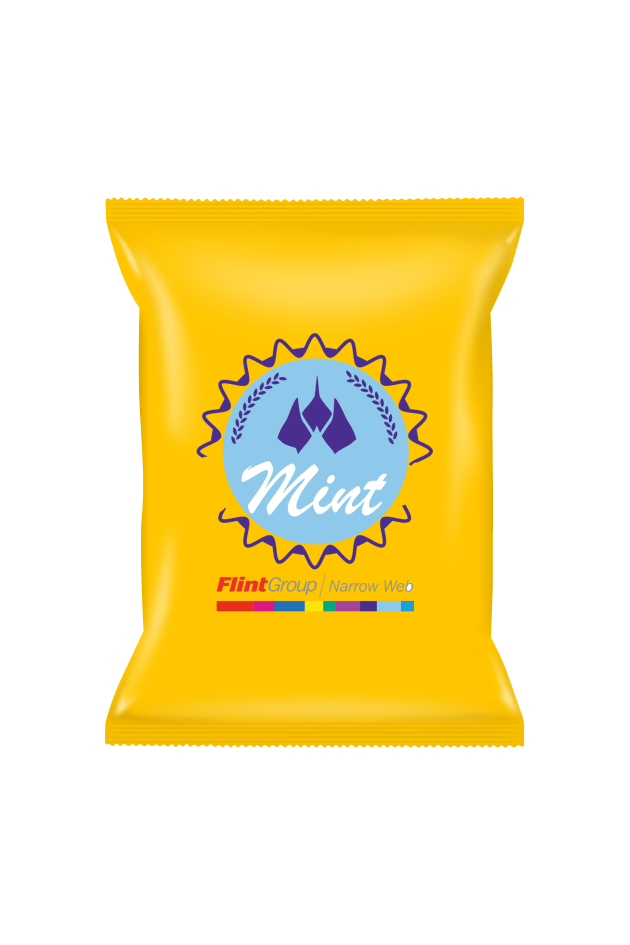Flint Group has introduced its new EkoCure Ancora dual cure food contact material (FCM) UV-curable ink for food, pharmaceutical and cosmetic label and flexible packaging applications.
Compliant with indirect food contact regulations, thanks to its ability for curing under both UV-LED and mercury UV systems, this new flexo ink series enables a phased transition to UV-LED technology, which in turn will bring improvements in productivity, cost savings and sustainability – without disruption, according to Flint Group.
Flint says EkoCure assures thorough ink anchorage, and identical colour quality results under both LED and mercury lamps, as well as low migration results on both unsupported film and label substrates.
These properties have led to its compliance to the Nestle guidance note on packaging inks (2018), current GMP, the Swiss Ordinance on materials and Articles (SR 817.023.21), and the EuPIA Exclusion policy, The Plastics Regulation (EU) No 10/2011.
The compatibility of EkoCure with both UV technologies enables converters to make a gradual shift to LED, for example, by upgrading the press one curing lamp at a time, lowering the financial risk and limiting downtime for refurbishment.
Switching to UV-LED curing with EkoCure inks brings improvements in both sustainability and efficiency, according to Flint Group, whihc says it reduces energy costs by at least 50 per cent, compared with using mercury lamps on press. Also, the elimination of mercury and ozone and the reduction of ambient noise means safer working conditions, as well as a smaller environmental footprint.
UV-LED curing offers increased production time, as lamps require no warming or cooling before and after operation. Flint says speed increases of up to 25 per cent are possible, thanks to faster curing times.
Additionally, for brand owners, the assurance of an effective migration barrier, made possible by the ink in combination with the substrate, may facilitate the move to lighter, easier-to-handle packaging. For example, a change from glass to film, such as pouches or blister packs, may deliver significant supply-chain savings.

“There is no doubt that switching from mercury to UV-LED curing yields cost and production benefits throughout the production process,” says Catharina Aaroe, product and continuous improvement manager – narrow web, Flint Group.
“The addition of EkoCure Ancora dual cure inks makes these benefits accessible to food-contact and pharmaceutical value-chains, combined with the assurance of compliance to the highest safety standards.”
EkoCure inks are formulated at the same strength as their pure mercury-curable counterparts, making colour-matching simple when switching to the new ink.
Flint says it is possible to run the dual cure inks, inline with existing pure mercury-curable inks, in different positions on the press for the same job, without compromising quality. It says this reduces inventory waste when switching to the new ink, as existing stocks can continue to be used in the normal way until they are ready to be replaced with new dual cure inks.
The series comprises an extensive offering of flexo shades, metallics and coatings. These include yellow, transparent yellow, orange, red, violet, blue and an opaque white screen ink, gold and silver, as well as gloss and matte varnishes that provide resistance against yellowing.
Flint Group’s dual cure ink series is available for almost all narrow-web applications. Others include EkoCure F, for printing on almost all film and paper labelstocks, as well as cartons and tags, and EkoCure XS for shrink sleeve labels.






